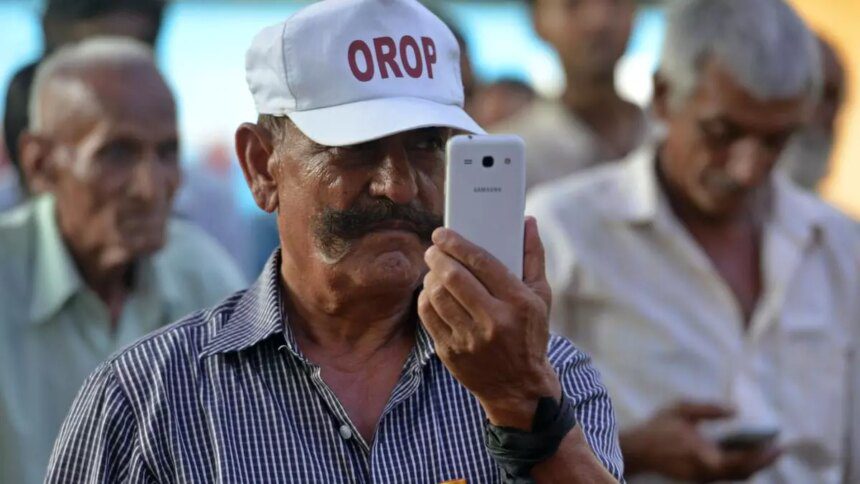In a significant ruling aimed at ensuring equality in pension benefits, the Armed Forces Tribunal (AFT) has ordered the central government to extend the One Rank One Pension (OROP) scheme to tri-services personnel who opted for premature retirement (PMR) after July 1, 2014. The Double Bench determined that their exclusion from this benefit was “discriminatory” and contravened Article 14 of the Constitution.
The case was brought before the AFT by 114 Indian Navy officers, primarily of the Commander rank, who contested the government’s decision to omit them from the OROP scheme outlined in the pension policy announced on November 7, 2015.
The OROP policy ensures that all armed forces personnel retiring at the same rank and with an equivalent length of service receive the same pension, regardless of their retirement date. Consequently, any future adjustments to pension rates are automatically applied to previous pensioners pursuant to the OROP framework.
In their judgment delivered on January 31, the AFT Double Bench, consisting of Chairperson Justice Rajendra Menon and Member Rear Admiral Dhiren Vig, deemed paragraph 4 of the OROP policy to be “discriminatory in nature, violates Article 14 of the Constitution, and cannot be implemented.” Justice Menon stated, “We strike it down and direct that PMR personnel be treated uniformly under the OROP benefits, eliminating discrimination in the allocation of this benefit to select individuals while excluding others.”
The judgment categorized PMRs into three groups:
1. Personnel who retired before July 1, 2014.
2. Those who retired between July 1, 2014, and November 6, 2015.
3. Personnel who opted for PMR after the OROP policy was issued on November 7, 2015.
The last two groups were initially excluded from the OROP benefits introduced by the central government. Counsel for the Indian Navy officers, SS Pandey, highlighted that the government had not made any such distinctions at the time the pension notification was first issued on July 1, 2015.
Pandey argued that the exclusion of certain PMR personnel was an effort to create “a class within a class.” This ruling stands to benefit over 25,000 officers from the Indian Navy, Army, and Air Force, according to Pandey.
Although a judicial commission was established to address disparities in pension policies, it failed to consider this significant issue concerning personnel who retired with identical ranks and service lengths yet received unequal pensions, as stated by the petitioners.
The AFT remarked, “The respondents have not provided any justifiable reason for denying OROP benefits to personnel who retired after the cut-off date of July 1, 2014.” The Tribunal criticized the creation of separate categories among PMR pensioners, asserting that this violated the legal principles established by the Supreme Court in the case of DS Nakara.
Furthermore, the Tribunal rejected the government counsel’s argument that the case pertained to administrative and policy matters and thus was beyond judicial scrutiny. Justice Menon asserted that even if the government exercised its statutory or executive powers, such policies must comply with the stipulations of Articles 14 and 16 of the Constitution. The AFT emphasized that the Supreme Court has intervened in policy matters to address discrimination against similarly situated individuals and groups, underscoring the Tribunal’s commitment to upholding legal standards.










